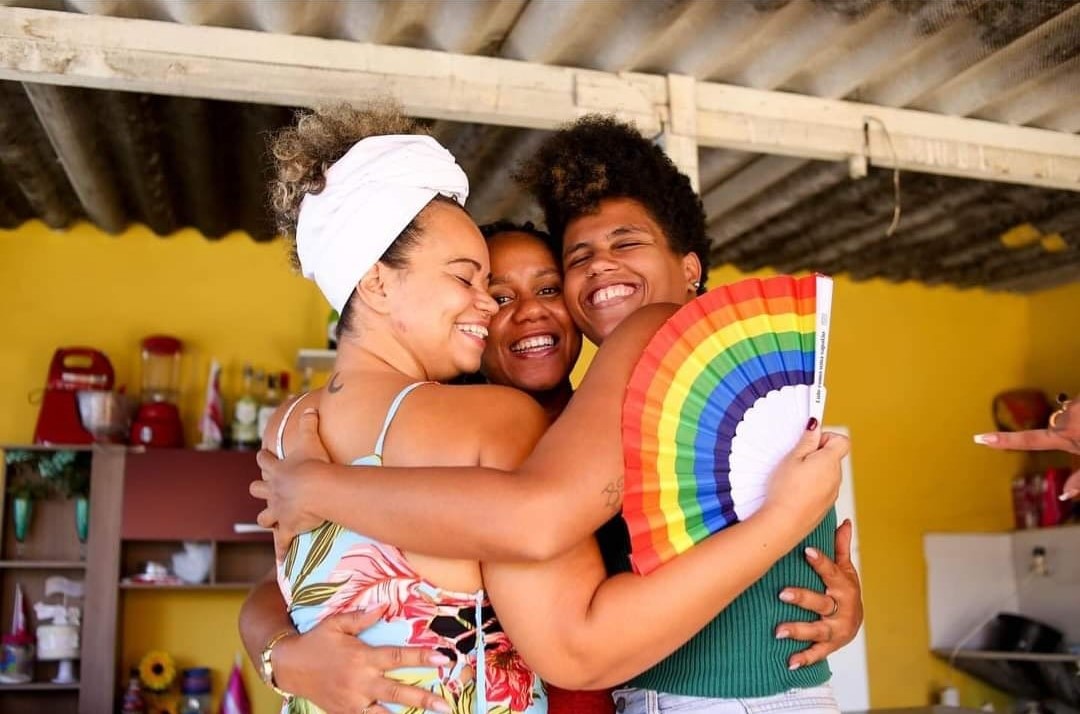
Clique aqui para Português
This article is part of RioOnWatch‘s series on Memories of Favela Power, which documents and celebrates the history of Rio de Janeiro’s favelas through narratives and reports from residents’ collective memory, in their daily struggle to lead fulfilling lives. It was originally published in Portuguese on June 28, International LGBTQIAPN+ Pride Day, celebrated worldwide with parades, festivals, cultural events, and other activities promoting LGBTQIAPN+ visibility, acceptance, and equality. The publication of its English version marks the beginning of Lesbian Pride and Visibility Month in Brazil, culminating with National Lesbian Visibility Day on August 29. The article explores the experiences and challenges of six lesbian women living in the favelas of Complexo da Maré, in Rio de Janeiro’s North Zone. Lesbian memories of resilience and the history of the organized favela movement bear fruit such as Casa Resistências, the country’s first home dedicated to providing a safe haven for LBT women within a favela—a survival strategy for Maré lesbians aiming to offer a safe and welcoming space within their own community.
Setbacks: Lesbophobia in Brazil
The advance of religious conservatism, lesbophobia, and fascism in Brazil can be tracked numerically. In 2023, the country recorded over 5,000 cases of human rights violations against lesbians, according to Dial 100, the federal government’s human rights violations hotline, with most crimes going unpunished. And the nation tops global rankings of trans and transvestite murders.
Little is said about the living victims, survivors of violent acts that are rarely named. For lesbians from favelas, the first obstacle when filing an incident report is the State’s necropolitics: the same police who kill in the favela are the ones called in to defend the rights of a lesbian who has been victimized. Rather than protected, she is then often re-victimized.
The second obstacle is invisibility and a data blackout. Lesbians in favelas need to produce their own data in order to fight for their rights. This is what the Lesbian Resistance Collective in Rio de Janeiro’s Maré favelas did in 2020 when, in partnership with the Fluminense Federal University (UFF), they launched the country’s first mapping of favela lesbians titled Sociocultural and Affective Mapping of Lesbians and Bisexual Women of Maré. The report highlighted how lesbians in Maré live and recorded their public policy needs.
Last but not least, the greatest obstacle to quality of life for lesbians is structural lesbophobia. Analyzing the National Information System for Notifiable Diseases (SINAN), researchers Suane Soares, Kamila Firmino, and Camila Dantas found that there was a 50% increase in cases of violence against lesbians between 2015 and 2022. These are women who survive but are left completely shattered, lacking the proper support of public policies to rebuild their lives. Typically, they rely on one another and the broader movement. In many of these cases, victims are not guaranteed the right to file a police report. There is a policy vacuum regarding the rights of LGBT+ individuals in favelas in Brazil.
It was only in 2024 that Brazil’s federal government created a program to support survivors of severe LGBTphobia, called Acolher+ (Shelter+). Linked to the Ministry of Human Rights and Citizenship, the project supports civil society organizations that operate LGBT+ shelters across the country.
Before that, some Brazilian states and municipalities, such as Rio de Janeiro, already had state and municipal programs to support LGBT+ rights, such as the Rio Without LGBTphobia State Program and the Sexual Diversity Coordination Office (CEDS). However, their work was restricted and primarily focused on education and violence prevention. For surviving victims, there are few mechanisms for access to justice and public policy. This is because, in Brazil, the social rights of LGBT+ people are, in reality, a collection of decisions by the Supreme Court (STF) and rulings by the National Council of Justice (CNJ), which can be overturned depending on the country’s political climate and court composition at any given time.
Memories, Alleys, and Lanes: Casa Resistências and the Sheltering of Lesbian Women
Gender reveal: “It’s a girl!” From then on, there are no surprises. “Sit properly! Behave like a princess, or else the boys won’t love you, or else God won’t love you! Close your legs, sit up straight! Walk gracefully!” This is how the life of a cis girl begins in a cisheteronormative society like Brazil.
Gracefully jumping over mud puddles due to Complexo da Maré’s incomplete sanitation, dodging the cops’ armored truck, coming back from a class that was canceled—whether due to a police operation, water shortage, power outage, or another public policy disservice—there go the girls being molded into cisheteronormative patterns. Another “Silva” [the country’s most common last name] being fed into the people-grinding machine.
Despite the hegemonic narrative stating that the family is a safe space, in practice, the first violence many LGBT+ people experience comes precisely from the family. Attempts at correction are always very aggressive, invasive, guided by conservative religious dogma, and hidden behind the guise of care. This violence accumulates like layers on lesbian women’s bodies, leading many to attempt suicide.
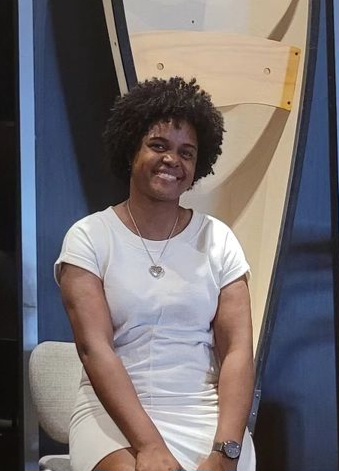
Every lesbian has heard from their relatives: “I don’t have a problem with you being lesbian, but I’m afraid you’ll suffer out there in the world.” In this way, even behind the narrative of protecting us, families commit violence.
In extreme cases, lesbophobia from family members culminates in being kicked out of the home. And so the girl is forcibly thrown into the world. In reality, there are several other unknown worlds where she will encounter various forms of violence. Facing this perverse reality would be much easier in a loving family that embraces and accepts the diversity of all its members. However, this is not the reality for all lesbian women.
Thus, in Maré, Casa Resistências stands as a possibility for these women, who come to understand that family is not about blood, but about affection, shelter, and friendship. For Majô Pinho, a Black woman from Bahia, founder of the MariEllas soccer team, and a resident of Vila do João—one of the 16 communities that make up the Maré cluster of favelas—for nine years, Casa Resistências has emerged as a crucial support, a beacon in the midst of violence.
“I’d never even seen a place like this before, specifically for lesbian victims of violence, which offers support to meet other girls from the favela too. Knowing that such a place exists here gives us a certain comfort.” — Majô Pinho
Growing up in the favela is an experience with many layers of complexity. Just like our many streets, lanes, and alleys, our journey is also tortuous and intertwined. We are like our squares and viewing points: when least expected, we offer beautiful images of the favela and the city. There is a beauty in this tangle of ways of inhabiting Maré that touches the deepest feelings in all of us. Among these intertwining paths and ways of life, women are mapped as just over half of the favela’s population.
However, these maps do not show the diversity of these women. This is a fact that women’s and LGBT+ groups in the area have been attempting to correct for some years by organizing specific studies. One example was the Socio-cultural and Affective Mapping of Lesbians and Bisexual Women of Maré, with 59 local respondents, where 24% are students, and the majority are Black and indigenous (71%). The violence they have experienced is summarized by the Institute on Race, Equality, and Human Rights:
“In relation to violence, the interviewees stated that they feel safer and more comfortable expressing their sexuality within the favela, as they have faced attacks outside of it… The research reveals that domestic violence is that which characterizes daily life for lesbians in Maré.”
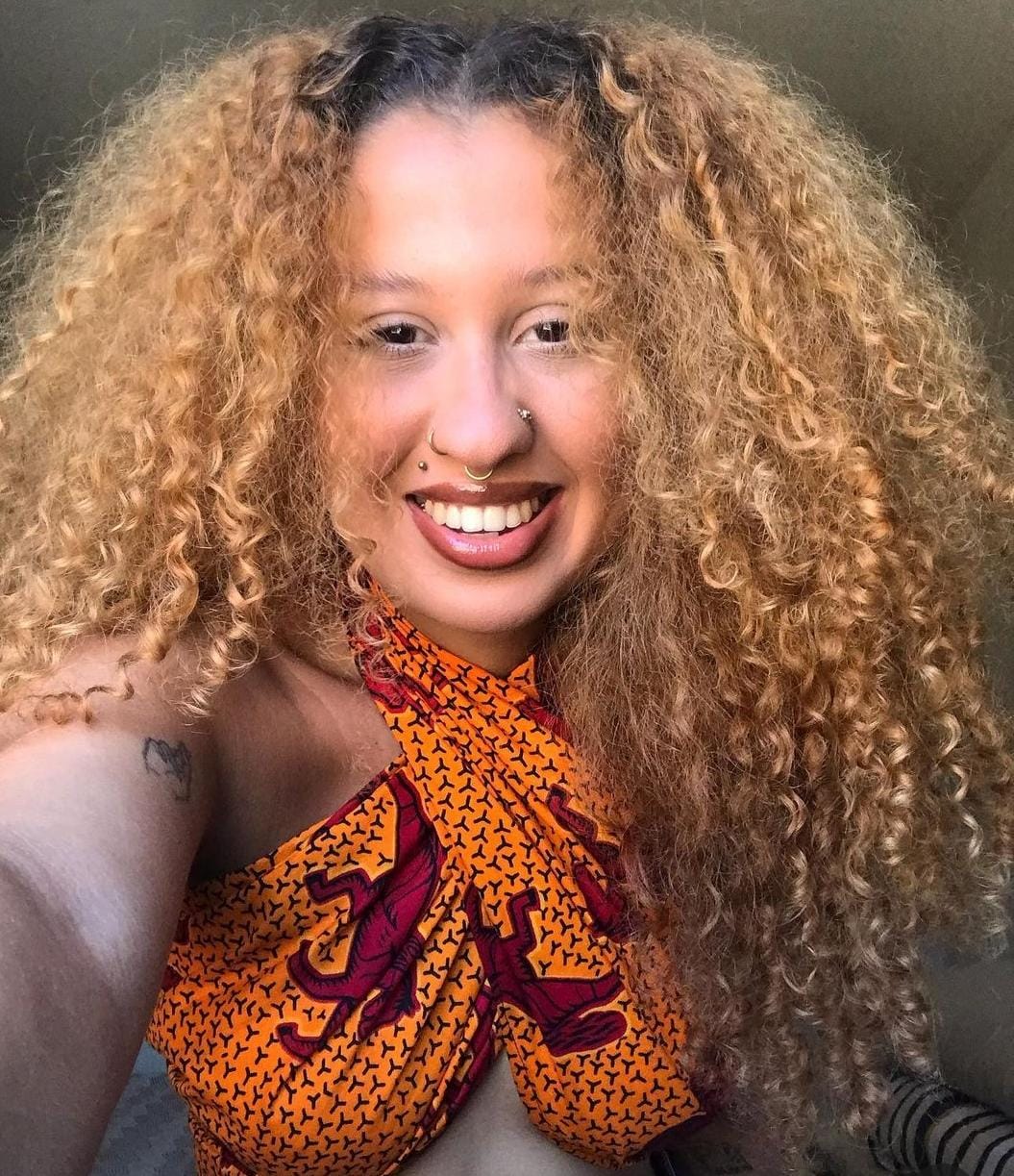
The legal means for action are still difficult to access, and progressing with these reports has been even more challenging. All members of the Maré Lesbian Resistance Collective report having experienced lesbophobia in the favela.
In March, Beatriz Virgínia and her girlfriend experienced lesbophobic harassment at a bar. They reported the crime and awaited justice. However, the case was dismissed due to an error made by the police officers when filing the incident at the police station. Faced with this, they felt completely helpless.
“When I faced that violence, I felt very abandoned. We know there are some laws protecting women in situations of violence, but we often don’t know how to access them. Besides, as favela residents, there’s always a fear of lesbophobia and hatred towards us, ‘favelados,’ which we know is structural within the police.
Thanks to Casa Resistências’ partnerships, I was able to access rights defense organizations. However, due to the bureaucracy within the police system itself, my incident report was dismissed. If I want justice, I’ll have to start all over.” — Beatriz Virgínia
And it’s not as if Beatriz Virgínia lacks knowledge or direction: the daughter of Dona Joelma, she is a human rights activist, a doctoral student at the Casa de Oswaldo Cruz—part of Brazil’s national health foundation, Fiocruz—coordinator of knowledge production at Casa Resistências, and a native of Maré. Although she is proud of and loves the favela where she was born and carries this responsibility with great commitment, she felt the full weight of structural lesbophobia when she was a victim of violence.
Lesbophobia is at the root of social relations and is therefore called structural. It has also affected Paloma Marins, a Black woman, practitioner of the Afro-Brazilian religion Umbanda, mother, human rights activist, employee of a hotel chain, and employability coordinator at Casa Resistências. She is, therefore, a woman with social and political visibility in the favela, known for her activism.
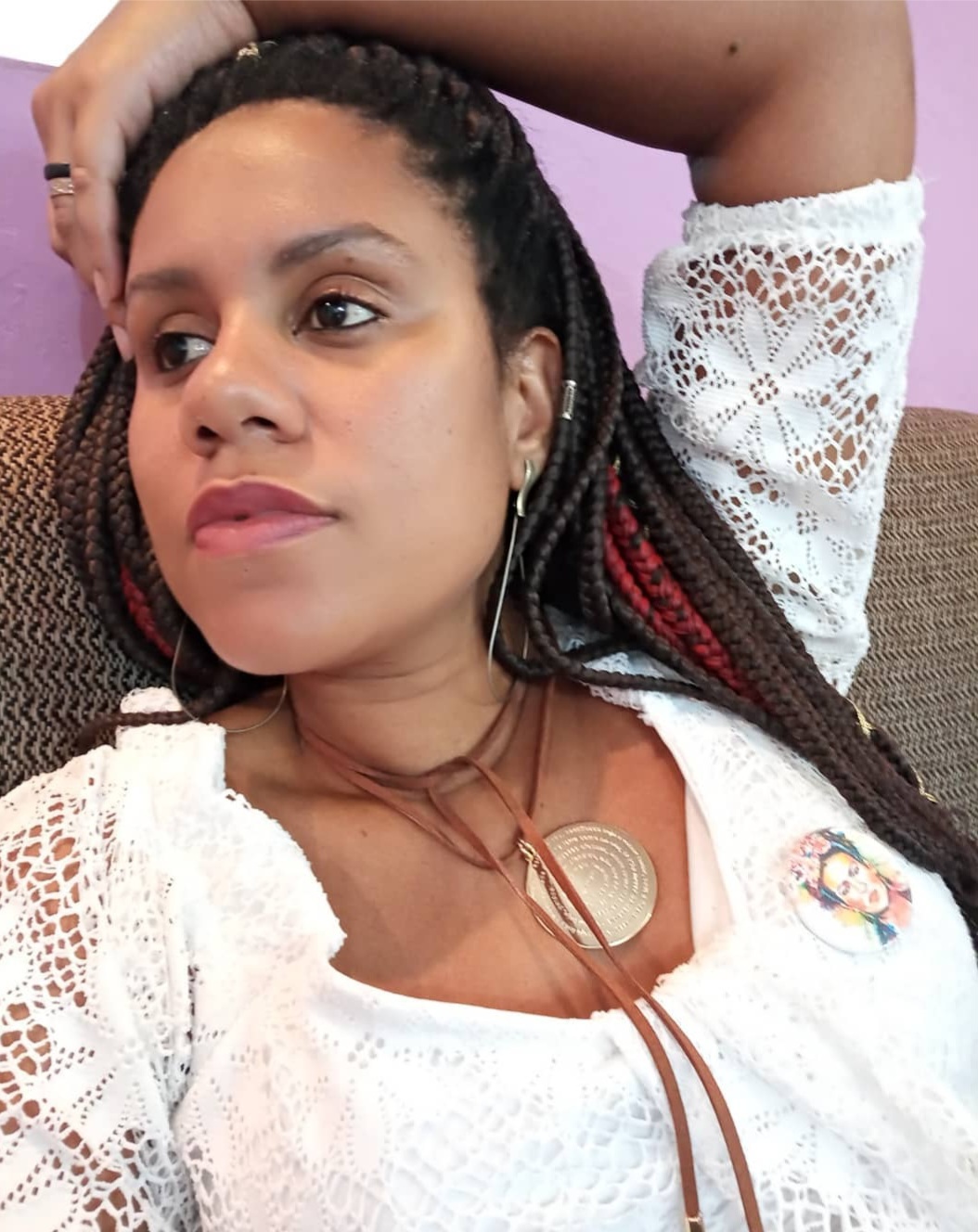
At the beginning of the year, after rejecting persistent advances from a man, Martins was given a spiked drink and woke up in an Emergency Care Unit (UPA), not knowing how she had gotten there. Completely disoriented, the only reason she did not experience further violence at the health unit was because the staff knew about the work of Casa Resistências and recognized her as a member of the group. The health professionals immediately contacted her colleagues to inform them that she had been admitted to the unit. She recalls:
“I sat at a bar to wait for my partner. Meanwhile, I ordered a drink. A man who always harassed me at work found me in the bar, approached me again, and I rejected him. It all happened very quickly. After that, I woke up at the UPA, without my clothes, in a robe, not knowing where I was or what had happened. According to the medical staff, there was no rape, but to this day I don’t know what happened because I don’t remember.”
In April, at Casa Resistências’ anniversary event, during the reading of the book Marielle and Monica: A Story of Love and Struggle, Councilwoman Monica Benício, born and raised in Maré and widow of slain Councilwoman Marielle Franco (who had also been from Maré), said that if there had been a place like Casa Resistências during her teenage years, her life would have been less complicated. According to Benício, she would have faced less lesbophobic violence in the streets of the favela.
Ver essa foto no Instagram
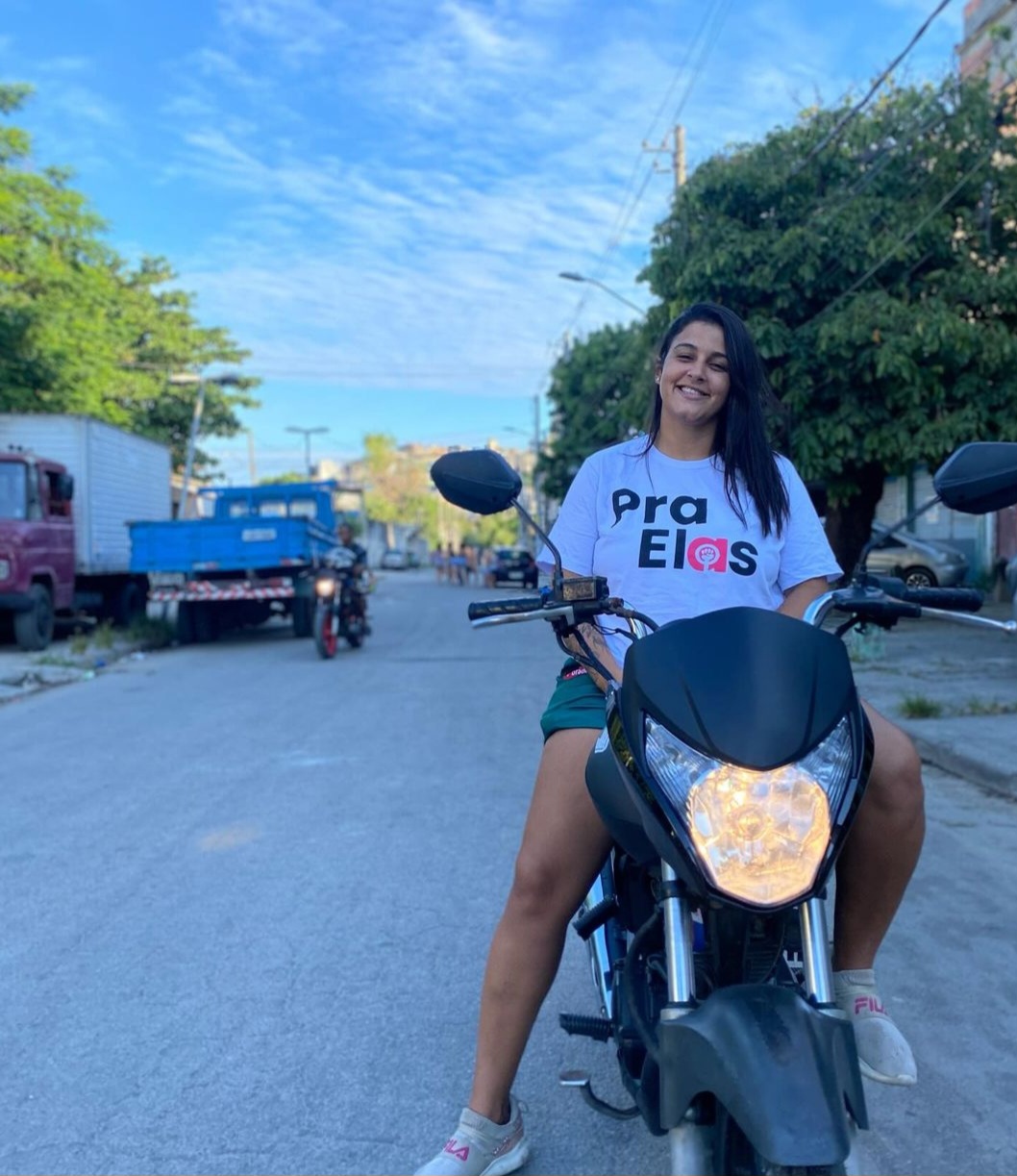
Violence against women’s bodies is an epidemic in Brazil. The country faces high rates of femicide and mutilates our bodies daily, through laws that criminalize victims, constantly questioning their words and the veracity of facts.
There are many cases like Mari Ferrer’s, who was raped and had her case shockingly classified as ‘culpable rape‘ by the judge, a legal category that did not even exist. Technology by men to protect other men.
Meanwhile, in everyday life, violence against women’s bodies is on the rise. This is the fear that Raissa Lima, judoka and founder of the For Them [Women] Collective, reports.
“I’ve never experienced any discrimination in Maré, but I have many friends who have. So, I’m somewhat cautious. It’s unfortunate, but it’s what keeps me safe from a lot of things. I don’t hold hands with any partner of mine due to fear of this violence.” — Raissa Lima
In some cases, violence is stated and carried out in an objective and concrete manner. In others, it manifests in a concealed, disguised manner, leaving room for what happens to one woman to happen to all.
Lesbocide begins with the disrespectful and invasive approach of the abusive man who, in many cases, upon rejection, resorts to perpetrating violent crimes against these women.
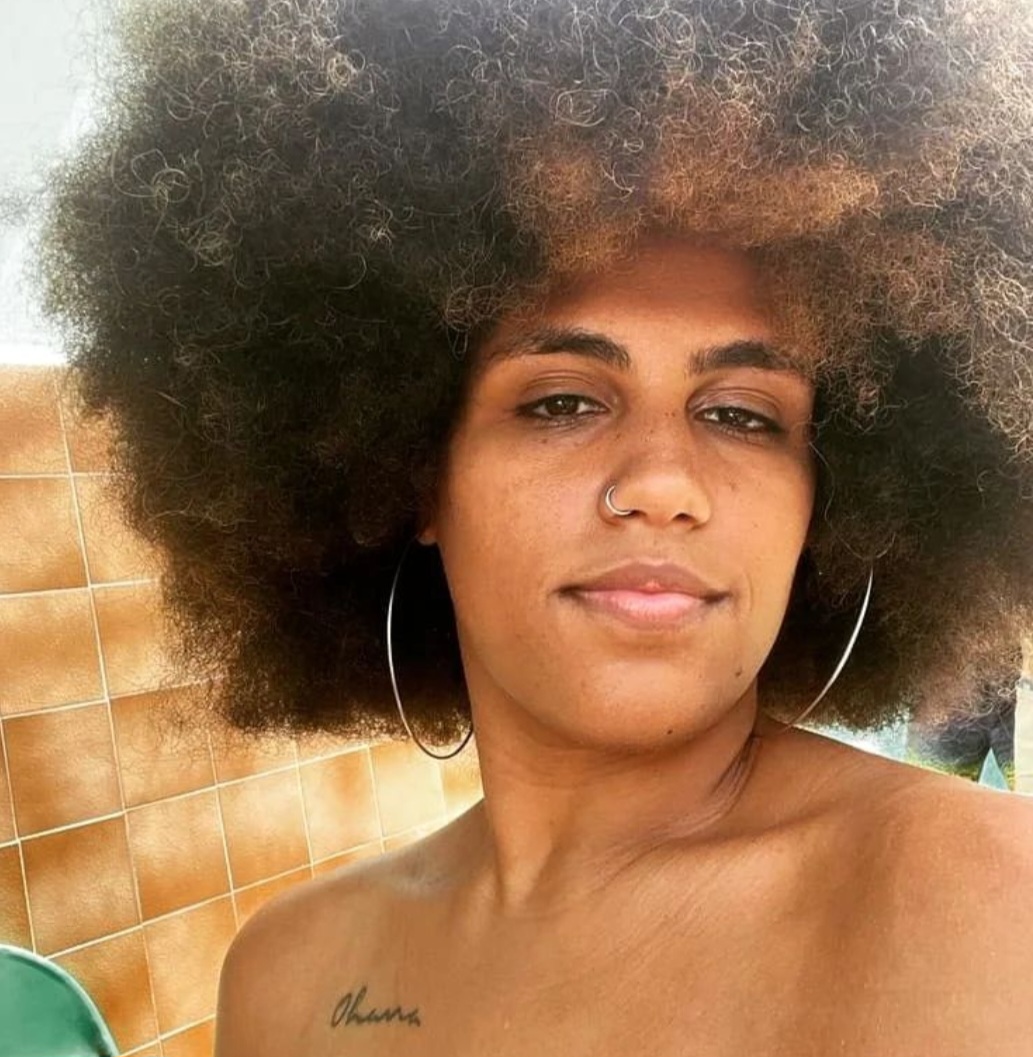
Camila Felippe, a Black woman and dentistry student at the State University of Rio de Janeiro (UERJ), and deputy general coordinator of Casa Resistências, also reports harassment from men who insist on positioning themselves as a cure for something that is not an illness. Many lesbian women have heard, especially from men, that they were sick, needed to be cured, and that the remedy would be the man himself, by having heterosexual sex with them, even against the woman’s will.
It is this culture of harassment and rape that makes possible aberrant concepts such as ‘culpable rape’ and so-called ‘corrective rape.’ As if extreme sexual violence could cure anything.
Brazil has numerous unresolved cases of lesbocide. The case of Luana Barbosa, for example, has already been taken to international organizations and remains unresolved. The investigation into Carol Campêlo’s case only began under pressure from the organized national lesbian movement, and even then, the response was inadequate. Both murders were cruel, but Campêlo’s case was particularly shocking due to its brutality, as her killer ripped off all the skin from her face. This mutilation served as a clear marker of the killer’s intense hatred towards her lesbian body.
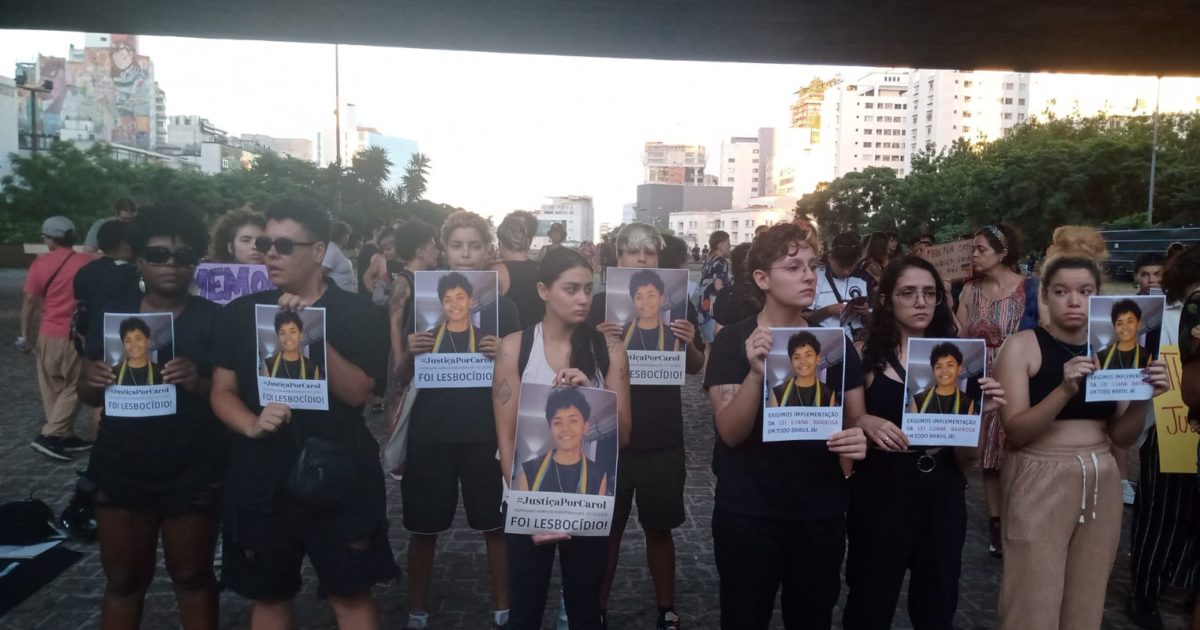

Erika Batista, 32, a chemistry teacher and girlfriend of Camila Felippe, reports she never noticed experiencing lesbophobia while alone, despite having a masc appearance (a lesbian who does not present femininity according to hegemonic standards).
“The looks directed at me are usually fatphobic, and that’s clear. But when I’m out holding hands with my girlfriend, the lesbophobia appears.” — Erika Batista
Favela Power
In the favela, just as in the rest of society, machismo, misogyny, and sexism prevail. We, lesbian women, find ourselves affected by all these forms of violence, in addition to lesbophobia.
It is extremely important to have a physical space in the favela where love and public displays of affection between two women are respected, welcomed, and celebrated.
“This is a favela lesbian survival technology. We from Maré have created this technology and we want every lesbian in Maré to know about us, about this safe haven.” — Camila Felippe
As we conclude this article, we would like to highlight the joy of the favela, the strength of our colors in everyday life. Everything we have is, in fact, thanks to the resistance of a population that, for decades, has been seen as an underclass, and which, in order to stay alive, has organized itself in the fight for rights. During Lesbian Pride and Visibility Month, our flag still flies high on our rooftops and in the windows of our homes. Our fists remain raised for the right to live our lives, free from violence.
For the LBT+ favela person, the challenges to merely remain alive are numerous and present themselves daily. However, despite the hardships that LGBT+ people go through in Maré, the favela is at the forefront of the fight for rights. In this territory, the favela lesbian movement built an LGBT+ citizenship center, the country’s first shelter for LBT women inside a favela, run by civil society and supported by the state government: Casa Resistências.
We will always be proud and defiant. All the women mentioned here are in some way part of building this support network for lesbians in Maré, thus creating a sense of not being alone, which fosters acceptance.
About the author: Dayana Gusmão is a social worker, specializing in gender and diversity at NeppDH (Federal University of Rio de Janeiro), currently pursuing master’s and doctoral degrees in Social Memory at UNIRIO. Born and raised in Complexo da Maré, she examines the memory of her favela through the lenses of gender, race, and African heritage. Gusmão is the founder of the country’s first shelter for LBT women from favelas: Casa Resistências, located in Vila dos Pinheiros, Maré.
